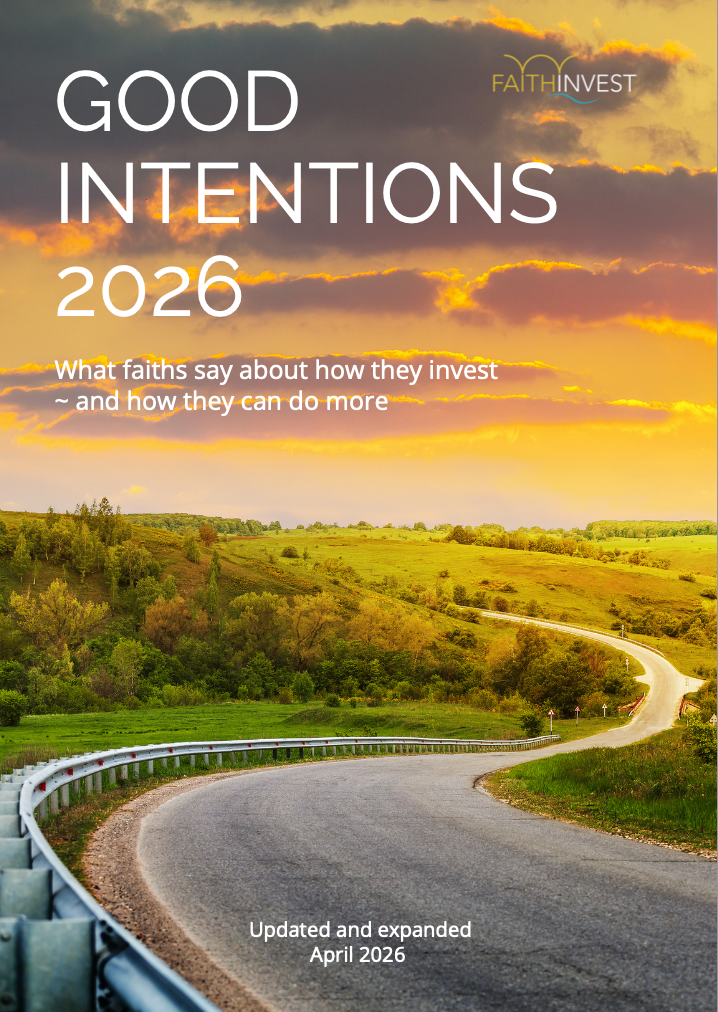Values-based investing is a journey, not a destination: CCF
- FaithInvest

- May 26, 2022
- 3 min read
Updated: May 16, 2023
For the Catholic Community Foundation of Minnesota (CCF), implementing values-based investing is a journey, not a destination. CCF manages around half a billion dollars of stewarded assets, most of which have been entrusted by faith-minded individuals and institutions.

Additionally, it awards $17+ million in grants to the community each year. Given its Catholic identity and its donor base, honouring faith commitments through stewarding fundsis the very crux of CCF’s work and mission.
We spoke with Mike Ricci, CCF’s Director of Professional Outreach and Investments, about what this means in practice. He explained that, at CCF, 'We need to make parameters of "Catholicity" around how we invest.'
Since its inception, CCF has screened for investments antithetical to Catholic teaching, such as guns, abortifacients, warfare, and pornography. But for CCF, this was not enough.–theThe team has since worked to move beyond negative screening toward proactive, faith-oriented investing and corporate engagement. Ricci describes the switch (click below to hear his comments:
Today, CCF combines these three strategies – screening, impact investing, and corporate engagement – to translate their values into action. As CCF moved toward impact investing, collaborating with quality partners like Ascension Investment was important–as was returning to a deeper understanding of finance (should this be finance or 'investment') as a mode of discipleship.
A 'financial bridge' for the poor
For Ricci, heeding the Christian call of 'financial responsibility – and enacting Pope Francis’s call to 'hear the cry of the earth in the cry of the poor' in Laudato Si’ – is about broadening CCF’s understanding of its 'true' shareholders. Here, Ricci describes how Laudato Si’ inspired the Foundation to see itself as a 'financial bridge' for the poor.
Ricci also explained that the shifts in attitude and approach demanded by Laudato Si’ are not easy. Balancing CCF’s Catholic mission with its need to make a return can be a challenge. Pursuing impact within the parameters of the Foundation’s guidelines also takes time, as does building consensus among donors, partners, board members, committees, and consultants.
But this important work of consensus-building, along with Laudato Si’s emphasis on relationality, accountability, and community, all come to life at CCF’s annual investment conference. Here, donors and partners can see the ways their investments are making a tangible difference in their community. Click here to listen to Ricci describe the experience.
An exercise of love
The idea that impact investing is an exercise of love is powerful. Ricci also explains that the decision to define 'return' outside of the marketplace is a catalyst for mission.
Pope Francis conveys this idea in Laudato Si’ when he introduces the term 'integral ecology'. He writes that our lifestyles and economic measures have impacts that are broader than we ever imagined–everything is connected, and any response to the ecological crisis will require that we refine our lifestyles, models, and ways of being in light of the reality we face. Our institutions, along with ourselves, are in need of conversion.
'A lot of people in this industry think of market return through the lens of fear and greed. But I’ve added a third leg to that stool – goodness. Goodness doesn’t require fear or greed to generate return. It is, by itself, an important piece to better understanding who your true shareholders are' – Mike Ricci
This kind of conversion and broad understanding asks that we shift our mindsets and priorities. 'A lot of people in this industry think of market return through the lens of fear and greed,' Ricci says. 'But I’ve added a third leg to that stool…goodness. Goodness doesn’t require fear or greed to generate return. It is, by itself, an important piece to better understanding who your true shareholders are.'
For institutions that are taking their first steps toward impact investing, Ricci stresses that finding a network of institutions similar in motivation, size, and structure is helpful. But the most important decision, he said, is the decision to get started. What began as $0 committed to impact projects by CCF has since grown to $18 million.
Everything is a gift from God
For Ricci, the decision to get started comes with the realisation of a Christian truth: that everything is a gift from God, and that human beings have a responsibility to steward these gifts. This requires a long-term perspective. 'Every resource that was given to us is a gift from God,' Ricci says. 'And how we treat it, and how we engage with it, determines not only our success today, but the success for future generations.'
With the charge of discipleship, he challenges Catholic foundations everywhere to take the leap.
'I think a lot of people that have been in this industry a long time could articulate and say, "Yeah, we follow USCCB guidelines." But when I say, ‘Well, but what do you do?’ That’s where it gets quiet,' says Ricci. 'I encourage other Catholic entities to take hard looks at their investment strategies and say, ‘How do we get involved in a way that’s truly beneficial and meaningful?'





